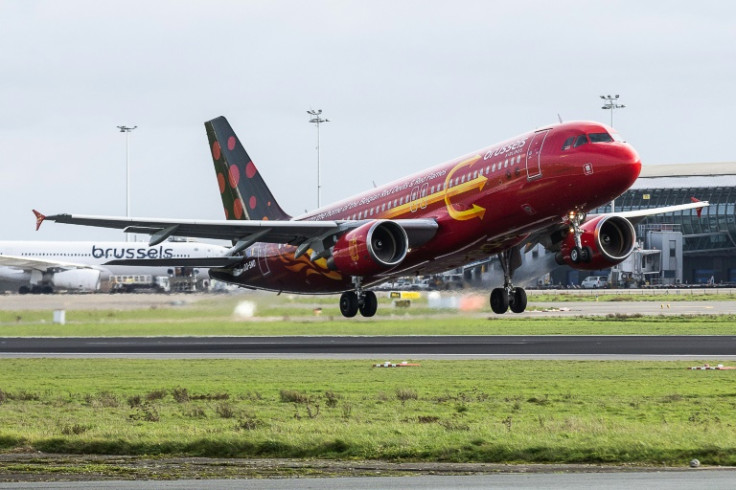Charting The Course For Sustainable Aviation

In recent years, the aviation industry has been making remarkable strides toward a more sustainable future, driven by a collective commitment to reduce carbon emissions and environmental impact. As airlines invest in this industry-changing strategy, it's crucial to measure the variability in net carbon emissions from blended fuel compared to jet fuel across regions, manufacturers and sources to successfully move toward realistic net-zero carbon emissions goals. One of the key pillars of this eco-friendly transformation is the adoption of Sustainable Aviation Fuel (SAF), marking a significant departure from traditional fossil fuels.
A report suggests SAF could contribute 65% of aviation's emissions reduction to net zero by 2050, requiring a significant production increase. The largest acceleration is expected in the 2030s as global policy support, SAF's competitiveness with fossil kerosene, and scarce credible offsets accelerate. Various studies, including research from McKinsey, highlight promising nonfood power crops as potential sources for SAF. These crops demonstrate the ability to produce sustainable aviation fuel efficiently. However, challenges remain, including the need for supportive regulations, financing, and industry standards to foster the widespread adoption of these technologies.
The aviation sector, responsible for a significant portion of global carbon emissions, is undergoing a transformative shift with the adoption of Sustainable Aviation Fuel. Despite the promising strides made by airlines like SAS in integrating SAF with traditional jet fuel, SAFs constitute less than 0.1% of global aviation fuel. However, the recent success of Emirates' A380 and Flight100 by Virgin Atlantic demonstration flight signifies a turning point. Even ITA Airways and DB Schenker Italy signed their first Fly with SAF agreement last year, aiming to involve freight forwarders and shippers in purchasing SAF, contributing to a mutual CO2 emissions reduction objective. This showcases the viability of SAFs in reducing the industry's environmental impact.
Suneet Singal, a seasoned entrepreneur and finance architect, is transforming industries through strategic investments in green technologies. He believes renewable energy can redefine industries and contribute to a sustainable future
Mr. Singal emphasizes the need to foster eco-friendly solutions. He states, "I believe in pushing boundaries and reshaping industries through sustainable practices. I strongly advocate for investing in green technology and financing, in line with global efforts to combat climate change."
SAFs are derived from renewable hydrocarbon sources, breaking away from traditional fossil fuel dependence. Sources such as used cooking oil, municipal waste, and forestry biomass offer a sustainable foundation for aviation fuels. This shift aligns with global efforts to move away from environmentally harmful practices and towards sources that can be consistently and renewably replenished.
But the production rates are insufficient and prices remain high, despite an exponential increase in production.
The sustainability criteria around Sustainable Aviation Fuels is strict; it must cut greenhouse gas emissions by at least half compared to oil-based jet fuels. Research shows it can achieve up to 80% reductions. This means that the next generation of sustainable aviation fuels could achieve CO2 reductions of 85-95%, made from biomass and everyday rubbish. While some commercial airlines are already using SAF blended with Jet Fuel, such as SAS, the current share of SAF in global aviation fuel remains under 0.1%, indicating the need for concerted efforts to scale up production and accessibility. Additionally, the agricultural resources required for some SAF feedstocks are under threat, emphasizing the importance of sustainable practices in sourcing these materials.
Beyond SAF, the aviation sector is exploring other avenues to reduce its environmental impact. Renewable diesel, green and blue hydrogen, and biodiesel blended products are part of a broader strategy to create a comprehensive and sustainable approach to aviation fuel. By diversifying the sources and types of green fuels, the industry aims to mitigate challenges and enhance overall sustainability.
The aviation industry must collaborate with governments, investors, and research institutions to drive innovation and establish a sustainable aviation fuel adoption framework. Green financing, research partnerships, and supportive policies can accelerate progress toward a cleaner aviation landscape. The Inflation Reduction Act in the US has created tax incentives for sustainable aircraft fuel (SAF) production, while the International Air Transport Association (IATA) has launched a policy called SAF Deployment to accelerate SAF production. Harmonized policies across countries and industries are needed to provide a level playing field for the global civil aviation industry.
Suneet Singal states, "Given the current foreign and domestic government mandates and the limited production in the market currently there is an inflection point between now and 2030, whereby supply and demand metrics will support exponential growth,"
© Copyright IBTimes 2024. All rights reserved.





















